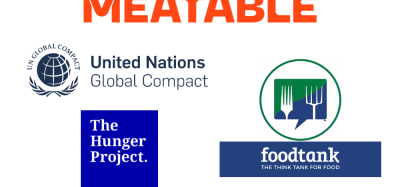The destruction of Ukraine’s agriculture: All part of the masterplan
- Like
- Digg
- Del
- Tumblr
- VKontakte
- Buffer
- Love This
- Odnoklassniki
- Meneame
- Blogger
- Amazon
- Yahoo Mail
- Gmail
- AOL
- Newsvine
- HackerNews
- Evernote
- MySpace
- Mail.ru
- Viadeo
- Line
- Comments
- Yummly
- SMS
- Viber
- Telegram
- Subscribe
- Skype
- Facebook Messenger
- Kakao
- LiveJournal
- Yammer
- Edgar
- Fintel
- Mix
- Instapaper
- Copy Link
Posted: 7 March 2023 | Professor Chris Elliott | 1 comment
Professor Chris Elliott highlights a frightening tactic employed by Russia one year on since the invasion of Ukraine – the weaponisation of food.


The world has rightly marked the anniversary of the Russian invasion of Ukraine in the past few weeks. We have all heard about the colossal impacts to the country in terms of human suffering and damage to the country’s infrastructure. We have heard about the effects the invasion has had on global food security and have experienced the consequences of the global energy crisis.
In this article I thought it would be appropriate to try and outline what myself and some other commentators believe has always been part of the Russian masterplan: to destroy the Ukrainian economy for the long-term and use food insecurity as a new weapon of mass destruction.
The tactics of Russia were quite clear from the onset of the invasion. Over 95 percent of food exports from Ukraine were via the Black Sea ports and these were blocked by use of mines and war ships early in the conflict. The grain deal brokered by Turkish president Recep Tayyip Erdoğan was hailed as a major success, but in reality still only a small percentage of crops can be sent to the countries most in need of food.
At the same time senior Russian diplomats undertook a ‘charm offensive’ in Africa and their future food security was a major topic of discussion. Since then, several African States have become much more pro-Russian in their stance – it was reported that South Africa has lost the moral high ground by being one of these countries.
Without supporting the newfound friendship for Russia in any way, this should not be seen as a surprise. Countries who rely heavily on food from Ukraine and agrichemicals from Russia will of course try and ensure food security for their inhabitants.
The agriculture sector in Ukraine in turmoil
The financial losses of agriculture in Ukraine caused by the war have been estimated to be over $34 billion. This consists of losses in the disruption to food exports, decreased crop production and increasing production costs. The invading Russian forces have also deliberately and systematically destroyed farming infrastructure such as agriculture machinery (nearly $3 billion) and grain storage facilities (over $1 billion).
Food as a weapon of war – why it’s time to hit the history books
In 2022 it was estimated that the agriculture crop had decreased by nearly 20 percent, though estimates for 2023 have been put at closer to 40 percent. Many factors lie behind these extremely worrying statistics. Shortages of seeds and fertilisers are steadily getting worse, there is also a shortage of labour due to mass migration and many farm workers being in military service, plus the lack of functioning agriculture machinery exacerbates an already dire situation. In terms of agricultural land, the Russians have in effect neutralised around 17 percent of arable land by its capture, destruction through a scorched earth strategy or has been heavily mined.
What all this means for Ukraine and global food security
Further decimation of the agricultural sector in Ukraine must be a likely outcome of the continuing invasion, not by accident but by design. Whenever the war does end, be it in a few months or a few years, it will take a very long time for the country to start to rebuild its agriculture and food sectors.
Massive investment will be needed and I wonder if some of the destroyed land will ever be fit for farming again. A country that once supplied nearly eight percent of the world’s food supply will leave a massive void to be filled long term. Russia, like no other nation on earth previously, has effectively weaponised food security. Their decisions on who to supply fertiliser to and at what price will dictate food availability across a swath of countries. How the world reacts to this new and menacing threat to global order remains to be seen. In terms of national risk registers, food security should be close to the top of the list.










Outstanding piece and analysis!